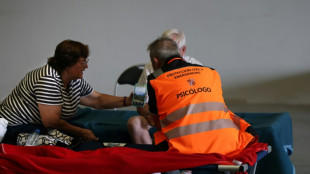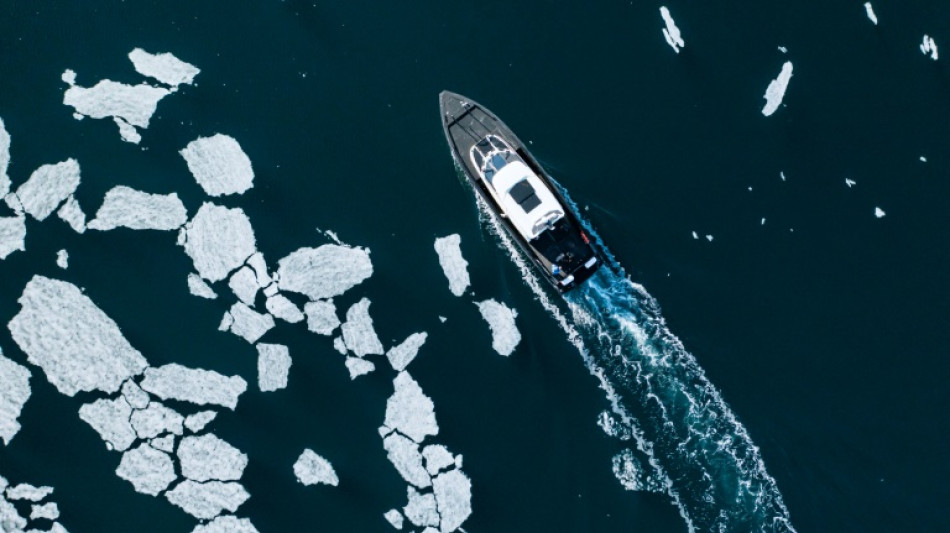
-
 Zanele Muholi, S.African photographer reclaiming identity
Zanele Muholi, S.African photographer reclaiming identity
-
'Restoring dignity': Kenya slum exchange offers water for plastic
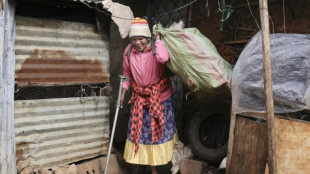
-
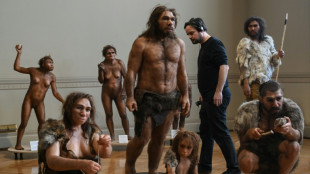 Human ancestor Lucy gets first European showing in Prague
Human ancestor Lucy gets first European showing in Prague
-
China Evergrande Group delisted from Hong Kong stock exchange

-
 A healer and a fighter: The double life of UFC star Shi Ming
A healer and a fighter: The double life of UFC star Shi Ming
-
US Open chaos as Bonzi ousts raging Medvedev

-
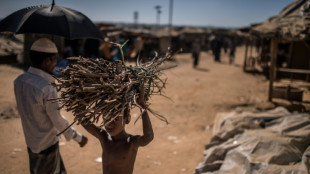 Bleak future for Rohingya, as Bangladesh seeks to tackle crisis
Bleak future for Rohingya, as Bangladesh seeks to tackle crisis
-
Cambodia MPs pass law allowing stripping of citizenship

-
 What to look for at the Venice Film Festival
What to look for at the Venice Film Festival
-
Venice welcomes Julia Roberts, George Clooney to film festival
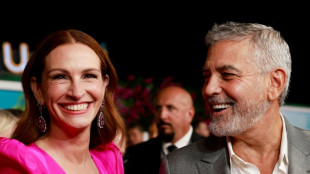
-
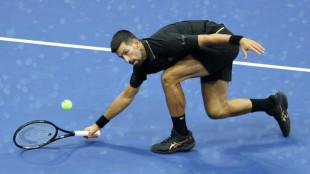 Djokovic voices physical concerns after US Open win
Djokovic voices physical concerns after US Open win
-
Olympic Council of Asia says Saudi Winter Games 'on schedule'
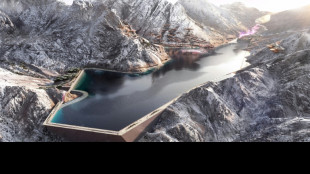
-
 Asian markets rise on US rate cut hopes
Asian markets rise on US rate cut hopes
-
Vietnam evacuates tens of thousands ahead of Typhoon Kajiki
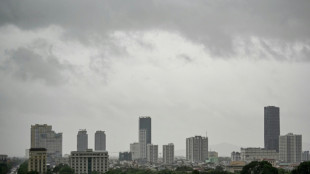
-
 Sabalenka into US Open second round, Djokovic off the mark
Sabalenka into US Open second round, Djokovic off the mark
-
Australian mushroom meal survivor says 'half alive' after wife's killing

-
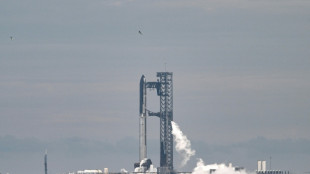 SpaceX calls off Starship megarocket launch in latest setback
SpaceX calls off Starship megarocket launch in latest setback
-
Djokovic shrugs off blisters to advance at US Open

-
 Israeli strikes in Yemen's capital kill six, Huthis say
Israeli strikes in Yemen's capital kill six, Huthis say
-
UN Security Council to vote on embattled Lebanon peacekeepers
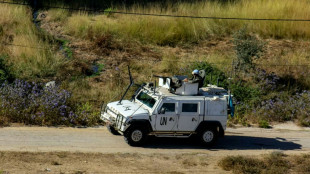
-
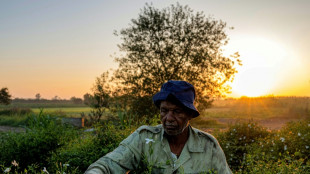 Egyptian farmers behind world's perfumes face climate fight alone
Egyptian farmers behind world's perfumes face climate fight alone
-
'Life-long dream': Oasis kicks off North American tour in Toronto

-
 Australia's mushroom murderer faces victims' family in court
Australia's mushroom murderer faces victims' family in court
-
'Over the moon': Filipino Eala bags historic first at US Open

-
 Fleetwood triumphs at Tour Championship for elusive first PGA Tour title
Fleetwood triumphs at Tour Championship for elusive first PGA Tour title
-
Mbappe fires Madrid to victory at Real Oviedo

-
 Giroud strikes late to lift Lille past Monaco, Rennes implode early at Lorient
Giroud strikes late to lift Lille past Monaco, Rennes implode early at Lorient
-
Israeli bulldozers uproot hundreds of trees in West Bank village

-
 David strikes on Serie A debut as Juve ease past Parma
David strikes on Serie A debut as Juve ease past Parma
-
Sabalenka into US Open second round as Fritz, Shelton advance

-
 Israeli strikes in Yemen's capital kill four, Huthis say
Israeli strikes in Yemen's capital kill four, Huthis say
-
England's Botterman aiming to be world's 'best loosehead prop'

-
 Kneecap defy critics with 'Free Palestine' chant at Paris gig
Kneecap defy critics with 'Free Palestine' chant at Paris gig
-
New Zealand start Women's Rugby World Cup defence by downing battling Spain

-
 Winless Man Utd need to 'grow up', says Amorim
Winless Man Utd need to 'grow up', says Amorim
-
Shelton romps into US Open second round

-
 Kneecap defy objectors with 'Free Palestine' chant at Paris gig
Kneecap defy objectors with 'Free Palestine' chant at Paris gig
-
US envoy criticises France's lack of action over antisemitism
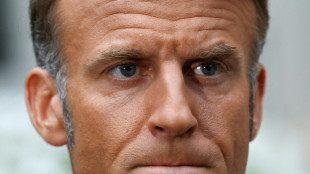
-
 Trump clashes with Democrats as he expands National Guard plans
Trump clashes with Democrats as he expands National Guard plans
-
Raducanu cruises to first US Open win since 2021 triumph

-
 Man Utd still winless after Fulham draw, Everton win to open new stadium
Man Utd still winless after Fulham draw, Everton win to open new stadium
-
Hamburg draws blank on Bundesliga return

-
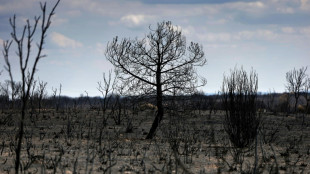 Spain heatwave was 'most intense on record'
Spain heatwave was 'most intense on record'
-
Chaotic Rennes set Ligue 1 red card record and lose 4-0 at Lorient

-
 Russia and Ukraine exchange POWs, civilians
Russia and Ukraine exchange POWs, civilians
-
Moyes sees big step forward after Everton win stadium opener

-
 Vingegaard wins on Vuelta mountain to take overall lead
Vingegaard wins on Vuelta mountain to take overall lead
-
Vingegaard wins on Vuelta mountain

-
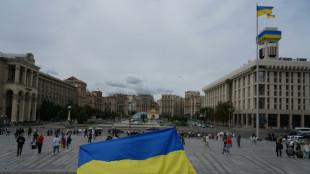 Zelensky calls for Putin talks as peace efforts stall
Zelensky calls for Putin talks as peace efforts stall
-
Everton beat Brighton in new stadium opener


The Arctic's tricky quest for sustainable tourism
Home to polar bears, the midnight sun and the northern lights, a Norwegian archipelago perched high in the Arctic is trying to find a way to profit from its pristine wilderness without ruining it.
The Svalbard archipelago, located 1,300 kilometres (800 miles) from the North Pole and reachable by commercial airline flights, offers visitors vast expanses of untouched nature, with majestic mountains, glaciers and frozen fjords.
Or, the fjords used to be frozen. Svalbard is now on the frontline of climate change, with the Arctic warming three times faster than the planet.
The local coal mines -- the original reason for human settlements here -- have closed one after the other over the years, and tourism has become one of the main pillars of the local economy, along with scientific research.
"It's always hard to defend because we know that tourism worldwide creates challenges to all the places people visit, but also in the bigger climate change perspective," acknowledged Ronny Brunvoll, the head of tourism board Visit Svalbard.
"But we can't stop people from travelling. We can't stop people from visiting each other, so we have to find solutions," he said.
Around 140,000 people visit these latitudes each year, according to pre-pandemic data, where 65 percent of the land is protected.
Like the 3,000 local residents, visitors must follow strict rules that bar them from disturbing the animals -- tracking a polar bear can lead to a big fine -- or picking flowers in an ecosystem almost devoid of vegetation.
"You are really confronted with nature. There are not a lot of places like this left," said Frederique Barraja, a French photographer on one of her frequent trips to the region.
"It attracts people, like all rare places. But these places remain fragile, so you have to be respectful when you visit them."
Ultra-polluting heavy fuel, commonly used by large cruise ships, has been banned in the archipelago since the start of the year, ahead of a ban to be progressively implemented across the Arctic as of 2024.
The ban may be another nail in the coffin for the controversial cruise ships that sail into the region.
The biggest of the behemoths can drop off up to 5,000 passengers in Longyearbyen, the archipelago's modest main town whose infrastructure, such as roads and toilets, is not designed to accommodate such large crowds.
- Electric wave -
With tourism here already attracting a rather exclusive clientele, some operators are going further than regulations require, such as Norwegian cruise line Hurtigruten which aims to become "the most environmental tour operator in the world".
Sustainability "shouldn't be a competitive advantage", said a senior executive with the group, Henrik Lund. "It should just give a right to play."
The company banned single-use plastics back in 2018, and now offers outings on electric snowmobiles.
It also recently launched excursions on board a small cutting-edge hybrid vessel, the Kvitbjorn (Polar Bear, in Norwegian), combining a diesel motor and electric batteries.
"In the idyllic exploration areas, we go full electric. We go silent and we don't have any combustion fumes," said Johan Inden, head of marine engine maker Volvo Penta.
But electrification efforts in the archipelago are currently hobbled by the fact that electricity comes from a coal plant -- a fossil energy source that contributes to global warming.
"Electrification makes sense, regardless of the energy source," insisted Christian Eriksen of the Norwegian environmental group Bellona.
Regardless of whether it comes from "dirty" or "clean" sources, electricity "makes it possible either way to reduce emissions," Eriksen said, citing a study on electric cars that came to the same conclusion.
Longyearbyen plans to close the plant by the autumn of 2023, invest in renewable energies and reduce its emissions by 80 percent by 2030.
But Brunvoll, the head of the tourism board, noted the main problem is travel.
"Even when addressing the things we can do locally, like the emissions from snowmobiles or cars, we must still acknowledge that the really big problem is the transport to and from Svalbard, both in tourism but also for us locals," he said.
"We have a climate footprint per capita in Longyearbyen that is insane."
A.Gasser--BTB

